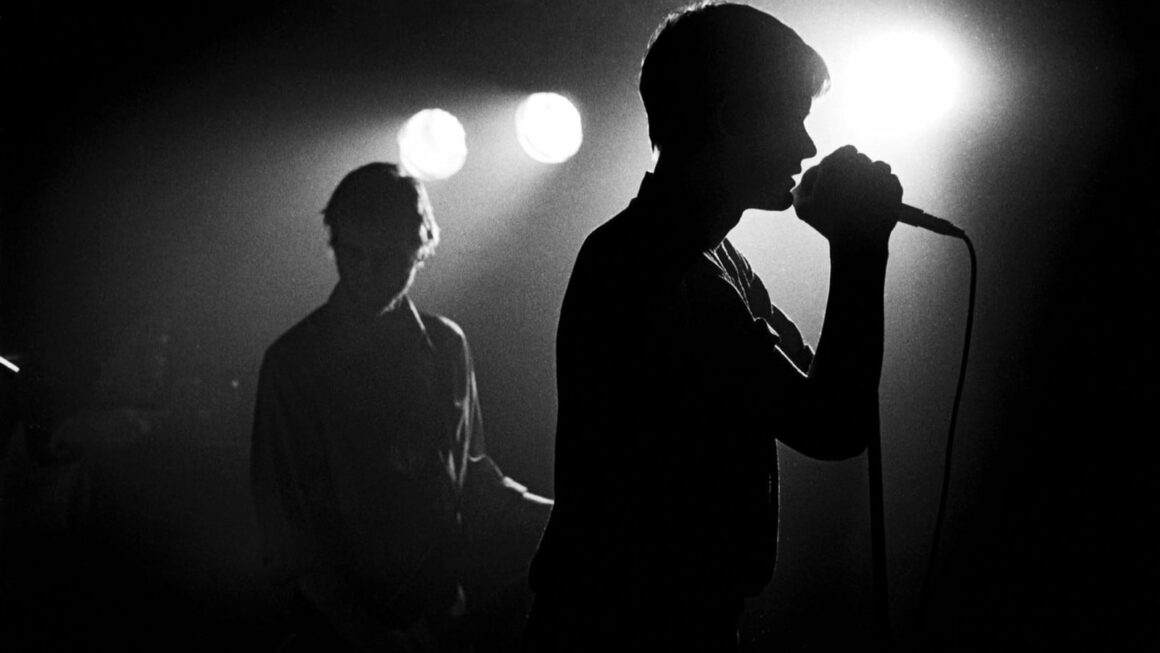
Song Stories: Peter Murphy’s “Cuts You Up”
How the ex-Bauhaus frontman evoked a timeless world that opened up the gateway to the cult following of his later years.
Falconry, a bass played by a violin bow, gratuitous shots of woodland, and ominous-looking storm clouds. The world of “Cuts You Up” by ex-Bauhaus frontman and Godfather of Goth, Peter Murphy, has less in common with the urban and sophisticated emotion of the New Wave scene in which he made his name. Instead, it’s a quasi-medievalist, timeless snapshot of a world still out there.
Released in the 1990s, after the heyday of Murphy’s time in Bauhaus, the song eschews the omnipresent synth for an analogue counterpart – the violin. With a repeating riff with a vaguely Celtic feel, this carries his low and gloomy vocals over a crisp drumbeat and thrumming acoustic guitars. The melody isn’t explicitly dark – but is still off the beaten track enough to still send shivers down your spine. In fact, it’s sudden shifts to major give the song more of a hopeful sense. The overall impression is of a pilgrim pushing forward on a journey. Lyrically Murphy takes the persona of a man who hopes to warn others not to do what he has done. Yet with metaphors of flight and wilderness, it’s as if, suckered into a relationship or other seemingly hopeless situation, he has finally broken free.
There’s something vaguely religious about the video and melody in tandem. Lighting creates deep contrasts between light and shadow, with shots of Murphy looking both God-like and mortally vulnerable. The video also has the back-to-the-earth mysticism of wooded imagery and a world to lose yourself in. In the end, it adds up to create something you know is meaningful on a much deeper level, even if you don’t understand why. Nevertheless, “Cuts You Up” remains human through all this. It’s not any higher power that is being worshiped, but his own emotions. By ritualising his sadness, Murphy creates a song that is time-and-spaceless, accessible to all who resonate with its earthy, twilight imagery.
Totally different from his Bauhaus work, “Cuts You Up” is a gateway to the cult following of his later years. It’s just as good for when you need to let out old pain as for something current. And the touching series of vignettes in the video have a childlike sense of being part of an epic saga or fairytale. From the release of the falcon to the scudding clouds and intrepid woodland journey as the guitars kick in – all of this gives an odd sense of looking into a lost world.
Parallels can be drawn with Sting. His later interest in folk music shares some similarities with Murphy’s new image. In fact, the 80s did lend itself in places to the exploration of folk. And the distorted guitars which suddenly pay homage to the era’s original musical themes at the end don’t cancel this out. Like an old ballad, it’s the same melody playing all the way through – first on violin and then on guitar.
Despite its esotericism, “Cuts You Up” was Murphy’s most successful release of his solo career. As the second single from his third solo album, it wasn’t poised to see this level of success, yet it even topped the US Billboard Modern Rock Chart. Perhaps it is, in fact, its timelessness that resonated with people in multiple countries.
For Murphy, to make something so bold and acoustic after a career based on innovating with synthesis must have been liberating in itself. As a result, this fresh approach allowed him to create a track so universally topical. It’s a mature song – one which has the pain and turmoil of the heady emotions of a musician’s younger years but also a world-weary wisdom that allows him to embody many ages at the same time, resonating with Bauhaus’ original fans as well as new listeners.
In the end, the song and video succeed because everything about it is so unexpected. At least one magazine even claimed that it became bigger than Bauhaus’ synth-rock breakthrough “Bela Lugosi’s Dead”, Murphy himself says in an interview that the thing that “cuts you up and spits you out” is the path of discovery, self-knowledge, and wisdom that one is wandering. With music often being a way to find states of enlightenment or creative flow, Murphy has spoken in interviews about how he looks at those seekers of spiritual enlightenment as people who are yet to discover how that path can chew you up and spit you out, bringing you to things which you may not have expected. In connection with themes of quest or pilgrimage, Murphy speaks to perhaps a universal creative urge.
With the way he sings about it, there’s no doubting that Murphy has been there himself. Perhaps, along with its timeless imagery and the fact that many seekers have been tempted, it is this which makes the song so resonant with those who get sucked in.
Featured Image by Juan Kattan









